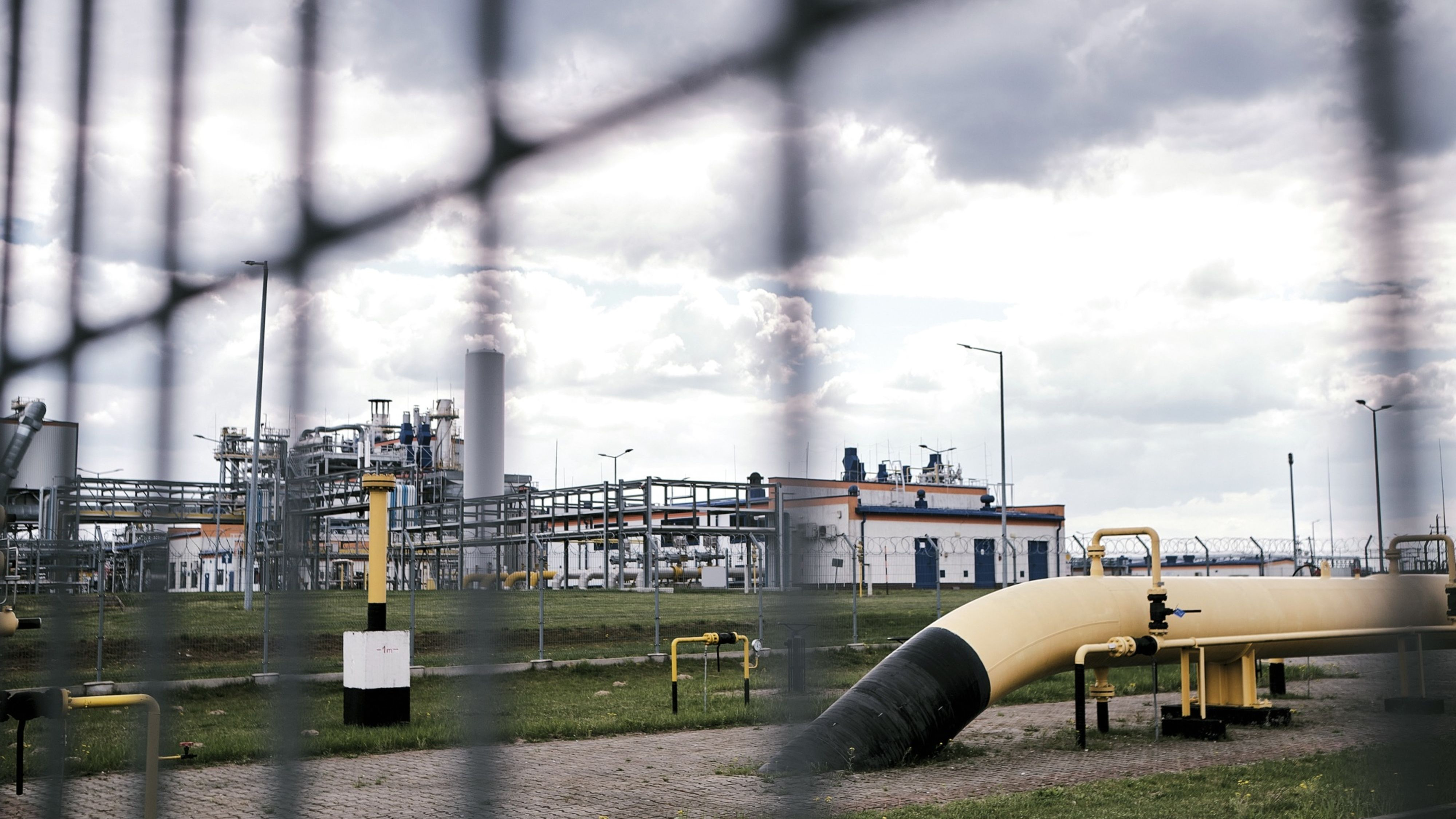
By Preslav Raykov
On 20 January 2001, on the last day of his second mandate, the 42nd USA president – Bill Clinton – announced the list of people who he “pardons”. A procedure, which the head of the state has the right to exercise and which has turned into a skillful diplomatic move of almost all presidents. Usually in the list with the pardoned there are people with different accusations – from domestic criminals to global financial frauders, international recidivists, spys and political prisoners. Born in 1934 in Antwerpen under the name Marcel David Reich is also in the list of 2001, who is more famous to the world as Mark Rich, also known as “king of petrol”.
The most famous commodity trader ever lived, the creator of the Glencore commodity conglomerate, one of the world's most controversial traders in oil, metals, minerals and grain Mark Rich establishes the company Mark Rich & Co. in the beginning of the 70s. Rich lives in a time when trading with commodities is really profitable business and if you do it at a time of economica war, hunger, international sanctions, lack of goods and dictators’regimes, you can profit billions. But at the same time, there is always a risk to incur the wrath of many governments. At the moment you find yourself in an identical situation, which – of course – is searching for its new Mark Rich.
The father of petrol spot market has traded with Iranian petrol right during the time of petrol embargo in 1979. He has supplied number of authoritarian and dictatorial regimes with metals, diamonds and food raw materials. Mark Rich became a mythological figure, an emanation of an impeccable financial mind, unshakable determination and love for good cigars. Until his death in 2013, the king of commodities lives in Switzerland since he was kicked out of USA and has been declared internationally wanted. It is in Switzerland that the main share of trade in raw materials worldwide is concentrated, and almost all companies trading in land resources are still based there.
For decades, Mark Rich has been on the list of the most wanted international swindlers by American justice and the many attempts to extradite him back overseas. His name is on the same list as Osama bin Laden, and the reward for his capture and return to the United States is millions of dollars. And because Rich is known as a skilled merchant, his pardon could be seen as a simple gesture of presidential diplomacy. In a series of revelations, the sums of huge donations that Rich made to the Clinton Foundation were announced, which later became the cause of a number of scandals in the presidential institution.
Tempting trade conditions
During the last two years, the situation on commodity markets surprisingly resembles the crisis in the 70s which Mark Rich and his company created and after that turned him into one of the richest businessmen in the world and one of the most wanted international swindlers.
Global pandemic shook the entire commodity supply chain and caused a unseen growth in prices of petrol, gas, metal, coal, wheat, vegetable oils, sugar, cocoa. The global shortage and its deficits were complicated by the war in Ukraine as well, which only for two months managed to reorder the commodity trade puzzle permanently and effectively in an entire different dimension. Russian economic, driven mainly by the sale of raw materials, it came under fire from unprecedented economic sanctions and threatened to be completely excluded from the world economy. Individual financial restrictions, whole sectors, and global exclusion from SWIFT were just some of the measures that caused turmoil in the commodity market. This was followed by bans on oil imports from Russia, a ban on Russian ships accessing European ports, and the cessation of trade finance for the purchase of these raw materials. As a result of this military and economic shock, oil prices exceeded $ 150 a barrel in just a few days, the nickel trade witnessed some of its most volatile sessions, and the grain markets of Russia and Ukraine began to experience difficulties in delivering already purchased quantities across the Black Sea. Russian tankers have begun to disappear from radar, and financing purchases from Russia has become a difficult task even for the most risky players among most of the world's banks and funds. Russia has also helped tighten the noose by imposing a ban on exports of a number of raw materials and products from the country. In just one month, Russian raw materials have become taboo for most of the global companies that ensure their daily movement around the world.
The truth is that in their desire to bring the Russian economy to collapse, international institutions have focused sanctions mainly on the Russian commodity sector. But the fact is that Russian raw materials cannot be excluded from the world economy so quickly. The world needs every day the millions of tons of ores, metals, oil, gas, nuclear fuel, wood, wheat, sunflower and corn that Russia provides to the world. And while we all hope the war ends sooner, trading them will become a lucrative venture that can turn the most combinatorial traders into the next Mark Rich overnight.
For many years, raw materials have been the backbone of the Russian economy, and with oil exports of about 8 million barrels a day, Russia is second only to Saudi Arabia in importance for world oil markets. But Russia is not just a leading power in oil. The country is also the world's largest gas exporter, accounting for 25% of world trade. Russia is also the largest exporter of wheat and palladium, as well as an important supplier of aluminum, coal, copper, corn and nickel. About 40 percent of the country's government revenue comes from the sale of oil and gas - oil exports alone pour more than $ 1 billion a day into Russia.
Immediately after the first financial sanctions were imposed, a number of companies in Russia began actively registering in jurisdictions such as Qatar, Turkey and Dubai to stay out of restrictive measures. Many commodities began to be traded at huge discounts to compensate for the drastically reduced interest, and parallel growth was registered in parallel black markets. Those who are willing to take risks will be rewarded by large spreads in the prices of Russian raw materials and those of the rest of the world. For example, the difference between the prices of Brent oil and the Russian Urals reached almost $ 32, and some of the large companies could not withstand the seductive deals and immediately took advantage. Oil giant Shell bought a huge amount of Russian oil just two days after the sanctions were announced, drawing much criticism from many rival companies and political institutions. The interesting thing in this case is that Shell made the order through Trafigura - one of the leading raw material retailers, which, like the one created by Mark Rich - Glencore, is one of the giants in the world of energy markets.
Currently, there is a huge volume of orders for Russian energy raw materials, mainly oil, aimed mainly at smaller traders who benefit from large discount margins. Many of the deals with them have started to go to destinations that do not fall under the jurisdiction of sanctions.
With metals the same trend can be seen as many of the big players in the sector juct cannot afford to stop immediately supplies to Russia. The nickel situation of the London metal exchange was indicative for the importance of the Russian markets and the largest nickel producer in th e world.
Cuban cigars and Swiss raw materials
Not by chance Mark Rich chooses Switzerland in particular for his sanctuary after being declared for internationally wanted by USA administration. Switzerland is famous as a world banker but is completely anonymous in relation to global hub in commodity trade. Regardless that Switzerland is far from the most important trade routes, it does not have sea access and colonial territories, it does not have valuable raw materials, but the country is one of the most important trade centres for raw materials in the world. The sector is a major part of Switzerland's GDP, with a much larger share of tourism or engineering, for example. Hidden from view, the commodity giants are making huge profits and, according to a 2018 Swiss government report, the trade volume reaches almost $ 1 trillion. per year. The five largest companies in Switzerland, according to annual turnover, are not banks or pharmaceutical giants, namely traders in raw materials and commodities. Most of the 900 companies that trade in raw materials on the planet are based in Geneva, Zug or Lugano. Two thirds of the trade in base metals such as zinc, copper and aluminum takes place in Switzerland, as well as two thirds of the trade in grain. The world's oil veins also flow through Switzerland: about a third of the world's oil is bought and sold in Geneva.
Russian profits from Switzerland
Russia also profits well from trading with Switzerland. Around 80% from Russian raw materials are being traded through Switzerland according to a report from the Swiss embassy in Moscow. Russian petrol and gas are moving to a great extent thanks to the deals, signed in the offices and governments in Switzerland. Exactly petrol and gas export is the main income source for the Russian president Vladimir Putin. They represent 30-40% from the Russian budget as in 2021 the Russian state corporations profited around 180 billion dollars only from petrol export. Those are money which are now used for financing the war in Ukraine.
At the moment the Swiss commodity traders remain with eyes closed for what the Russian country is doing with all these assets. However, the situation in the country is "quite legal" under their legislation, which has huge loopholes for traders in goods.
Ghost ships
In the late 1970s, Mark Rich made his most lucrative deals by selling Iranian oil at a time when the world was gripped by an energy crisis and widespread US embargo, restrictions and controls. Today, Russia's invasion of Ukraine has placed Russia in a de facto total embargo on Russian oil, as well as many "self-imposed" restrictions. Social pressure on a number of major oil companies, traders, freight forwarders and banks has managed to put the Russian oil trade in desirable but forbidden activities. However, Russian energy raw materials continue to leave the country - but not so officially.
The so-called "dark activity", in which transponders of ship data are turned off for hours, has in the past been seen by US authorities as a fraudulent shipping practice often used to evade sanctions.
Currently, dark activity among Russia's crude oil tankers has increased by 600% compared to the pre-war period. Against a number of agencies, there is a jump in Russian tankers, who deliberately turn off their transponders to circumvent sanctions. Part of the Russian merchant navy is also beginning to hide its location, and this is happening not only with oil tankers, but also with many other raw materials.
Although international shipping regulations require ships to have transponders on at almost all times, this model has been well known for the past 10 years, when sanctions were imposed on oil exports from Venezuela and Iran. At the moment, however, the problem with Russia is much more dramatic, because in reality, apart from the United States, no other jurisdiction has officially imposed an embargo on Russian oil imports. However, many companies simply do not want to be officially announced that they are buying it, as well as where and how to transport it afterwards. Traders are under the social stigma of financing the war in Ukraine, and shipping companies are reluctant to risk their reputations and take the risk of possible sanctions on their ships, which will thwart their future orders.
Contrary to or despite sanctions, demand for Russian oil remains extremely high. According to Rystad Energy, almost 1.5 million barrels a day are disappearing from Russian oil exports, and the rest are increasingly going to "unknown" destinations. Of course, Mark Rich's potential heirs are targeting locations that are not banned from buying Russian oil and are major consumers of the commodity: large quantities are targeting India and China, with traders using other methods to avoid sanctions - ship-to-ship transfers of cargo. This practice is well known for wanting to avoid sanctions on certain goods of certain origin, and is now extremely common, with many raid operations involving ships standing side by side and then disappearing from tracking systems. .
Increased demand
Against this background, major oil companies such as Shell, British Petroleum, Annie and others. began to actively seek quantities of Russian oil through large trade conglomerates that are not so directly under the scrutiny of shareholders and the public. Trafigura, Vitol, Glencore continue to trade actively in Russian energy raw materials, but have announced that they will review their policies on operations with Russian raw materials. This opens the door to new players who are willing to take risks, have the capital to do so and still remain anonymous. It is possible many of them to be just well masked ordinary traders, because in the commodity world almost everything in the sector is done behind closed curtains even if is well known to those dedicated to this business.
Hidden from the eyes commodity traders to find possibilities for profit in Russia and related to Putin’s reginme companies does not comes as a surprise and is not for the first time. In the commodities trade sector, not all traders are high-profile companies or fear public scolding. In fact, such commodity traders have probably done more to help Putin stay in power than anyone else in the international business community since the West imposed sanctions on Russia in 2014 following the annexation of Crimea.
Raw diplomacy and Russian medals
Companies, trading with world resources are part of perfectly working business model, which ensured to the world constant production without a deficit of basic resources, which guarantees a high standard in developed countries. It is the control they exercise over the world's major commodities that allows them to play a crucial geopolitical role today. To a large extent, they have the potential to decide the outcome of wars and resolutions, but at the same time with the insidiousness of keeping dictators and kleptocrats in power - as long as it brings them huge profits. In this way, these companies have become an integral part of the global financial system, and in a sense can even be called its creators and designers on a global scale.
Facts from the last decades prove the theory that raw material conglomerates in Russia have a great influence on today’s world. Created by Mark Rich, Glencore, which continues to be the greates raw material trader in the world helped Russia just 5 years ago to gather 11 billion dollars, form a consortium with the Satar Sovereign Wealth Fund and buy a stake in Russian energy giant Rosneft. Putin was so grateful that personally award the Kremlin's then-Glencore guide, Ivan Glazenberg, with a medal of merit.
Trafigura, the other leading trading company in the sector, recently acquired 10% of Rosneft's leading oil project, Vostok Oil, for € 7 billion, making it one of the largest shippers of Russian oil. Her guide, Jeremy Weir, openly explained why the company had increased its dealings with Rosneft since the 2014 sanctions: "We just saw a niche in the business."
And Vitol, the largest physical oil trading company, whose top executives work in an office a few meters from Buckingham Palace and are among the major donors to Boris Johnson's Conservative Party, has invested $ 3.5 billion since last October. in the East Oil project. Although after the Russian invasion on February 24, Trafigura, Vitol and Glencore announced that they would reconsider their involvement in Russian supply chains, as well as future investments in Russian energy projects.
Expecting next Mark Rich
Long time before Putin came to power, famous commodity traders as Mark Rich and David Ruben interfered the markets to take advantage from the transition from state economy to capitalism. And so, they laid the foundation for the system which today controls the raw materials worldwide.
The question now is, what will they do in the situation after the war in Ukraine? Will they stand firmly behind Western policy and sanctions, or will they try insidiously to circumvent them again, helping Putin find new buyers for his raw materials to maintain his military machine? We'll see. The world is waiting for the new Mark Rich.
THE BOTTOM LINE At the moment the dark activity among Russia's crude oil tankers has increased by 600% compared to the pre-war period.



